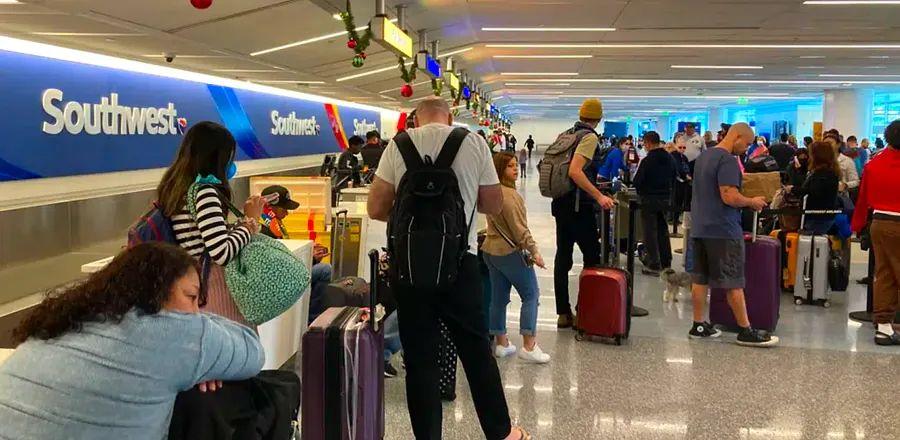Southwest Airlines Faces Ongoing Cancellations—What Happened?

A significant winter storm swept through large areas of the country, hitting major U.S. airlines hard over the weekend. While most airlines had bounced back by Monday, December 26, Southwest Airlines struggled to recover.
After the worst of the storm subsided, issues at Southwest Airlines began to escalate, resulting in over 70 percent of its flights being canceled on Monday, more than 60 percent on Tuesday, and a forecast of operating only about a third of its normal schedule in the upcoming days to help crew members reposition.
In contrast, American, United, Delta, and JetBlue managed to maintain cancellation rates ranging from none to 2 percent by Tuesday. This discrepancy has prompted the U.S. Department of Transportation to investigate Southwest's operations, labeling the high cancellation rate as "disproportionate and unacceptable" while ensuring the airline fulfills its responsibilities to affected passengers.
The storm's magnitude and intensity wreaked havoc on airlines, with airports inundated by heavy snowfall and snowdrifts. Over the weekend, airlines canceled as much as 20 percent of their flights on Saturday and Sunday, and Buffalo Niagara International Airport, located near the storm's center, remained closed on Tuesday.
It has become increasingly evident that Southwest Airlines is experiencing an unusually high level of disruption. Out of 2,890 flight cancellations reported in the U.S. early Tuesday, a staggering 2,522 were attributed to Southwest.
Jay McVay, a spokesman for Southwest, stated during a press conference in Houston that the flight cancellations escalated as storm systems traversed the nation, displacing both flight crews and aircraft.
“We’ve been scrambling to catch up and return to a safe normality, which is our top priority, as quickly as possible,” he explained. “This is precisely how we arrived at our current situation.”
Passengers found themselves waiting in long lines as they attempted to rebook their flights.
The Department of Transportation expressed its concerns on Twitter regarding Southwest’s excessive rate of cancellations and delays, along with reports of inadequate customer service. The tweet indicated that the department would investigate whether Southwest could have mitigated the cancellations and if the airline adhered to its customer service commitments.
Bryce Burger and his family had planned to embark on a cruise to Mexico from San Diego on December 24, but their flight from Denver was unexpectedly canceled, he reported on Tuesday. They were rebooked to fly from Burbank, California, but that flight was also canceled while they waited at the gate.
“My kids’ Christmas is ruined. It’s just terrible,” Burger lamented during a phone call from Salt Lake City, where the family opted to drive after abandoning their cruise plans.
The family’s luggage remains at the Denver airport, and Burger is uncertain whether he can secure a refund for the cruise, as the flight to California was booked separately.
Burger's call logs reveal countless unsuccessful attempts to contact Southwest over a two-day period. The company eventually responded to a tweet he posted, offering each family member a $250 voucher.
In an interview with the Wall Street Journal, Southwest CEO Bob Jordan stated that the airline would operate at just over a third of its normal capacity to allow crews to reposition themselves appropriately.
“Today was a challenging day for us. It’s likely we’ll face another difficult day tomorrow as we navigate through this,” he remarked on Monday evening. “This is the most extensive event I’ve ever encountered.”
Evaluation :
5/5



